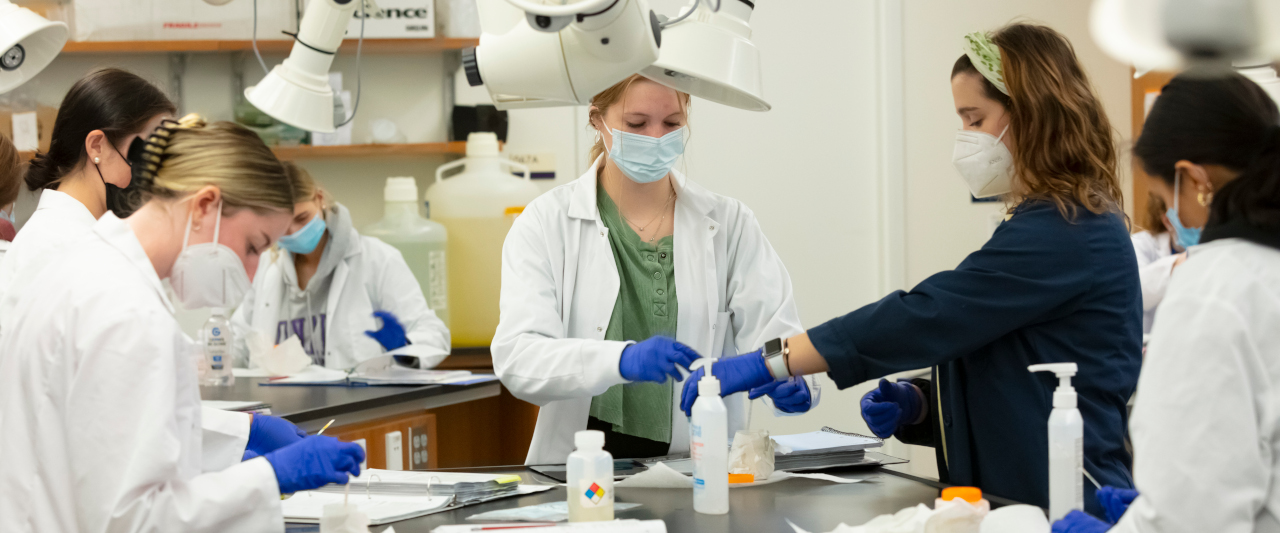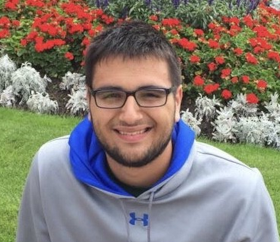Pre-Medical and Pre-Health Professions Program
Scranton's Pre-Medical and Pre-Health Professions Program has a long tradition of preparing students to excel at the next level of their education.
As a pre-health student at Scranton, you’ll have the chance to:
- challenge yourself academically
- develop your humanistic side by participating in service opportunities on and off-campus
- conduct research projects with faculty
- gain an understanding and appreciation of the clinical aspects of healthcare delivery
Students are encouraged to join the Health Professions Organization (HPO), a student-run club providing peer advising, weekly talks and presentations, and networking opportunities with health care professionals in Northeast Pennsylvania.
Of the more than 1,200 applicants to doctoral health professions schools over the past 20 years, nearly 80% were accepted to schools of medicine, dentistry, veterinary medicine, podiatry, optometry and pharmacy. Our acceptance rates are consistently higher than the national acceptance rates.
- In the past 10 years, more than half of our successful applicants have received more than one acceptance.
- Scranton students accepted to medical and other health professions schools generally have had a total GPA of 3.6 or higher, and a science GPA of 3.45 or higher.
The Office of Health Professions
The office provides comprehensive advising to all students interested in preparing for a career in the health professions.
Whether your goal is medicine, dentistry, veterinary medicine, optometry, podiatry, pharmacy, or physician assistant studies, our holistic and personalized advising can assist you with:
- course planning
- extracurricular and experiential opportunities
- the application process
- preparing for interviews
Meet With An Advisor:
You should meet with a pre-health advisor at least once a semester, but you can have multiple meetings if necessary.
Our office is at 301 IMBM (The Institute of Molecular Biology and Medicine, next to Alumni Memorial Hall). We are open year-round, including winter break, spring break, and summer.
To schedule an appointment with pre-health advisor Dr. Maria Squire:
Email prehealth@scranton.edu
OR
Call the Office of Health Professions at 570-941-7901
To schedule an appointment with the pre-health advisor for first-year students, Mrs. Pamela Harper:
Email Mrs. Harper directly at
pamela.harper@scranton.edu
OR
Call the Academic Advising Center at 570-941-6323
To schedule an appointment with pre-health advisor Dr. Michael Fennie:
Email Dr. Fennie directly at michael.fennie@scranton.edu










